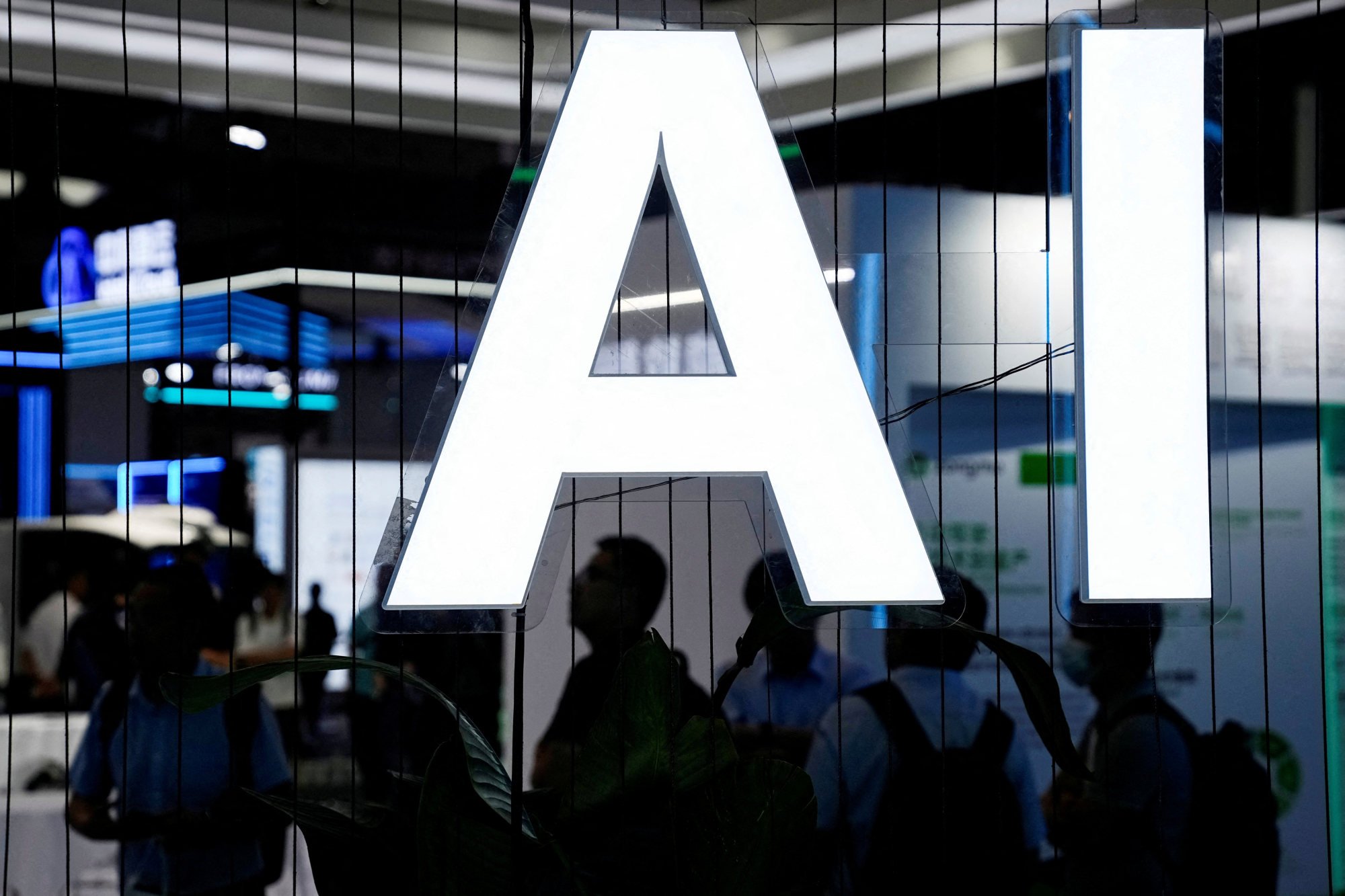In contrast to the perception that Beijing has placed a lot of ‘guardrails’ on AI, China’s AI regulation so far has been limited
The first half of 2025 has witnessed a wave of artificial intelligence (AI) adoption in China. The speed and extent of this trend has exceeded previous technology waves, such as the internet in the late 20th century or electricity before that.
Thanks to the country’s computing infrastructure and fundamental models from developers like DeepSeek, Alibaba Group Holding, Tencent Holdings, ByteDance and Baidu, China is probably among the world’s most aggressive nations in adopting AI. The new technology is easily available at a reasonable cost – for individuals it is usually free – and an army of agents is ready to help deploy AI for businesses. Alibaba owns the South China Morning Post.
China is eager to roll out AI
partly because the country is engaged in fierce competition with the US, and the priority is clearly on achieving the growth and adoption of AI. China’s tech giants and start-ups must relentlessly improve their AI technologies and promote their use to businesses and individuals, or they risk becoming irrelevant if they fall behind even for a few months.
Do you have questions about the biggest topics and trends from around the world? Get the answers with
SCMP Knowledge
, our new platform of curated content with explainers, FAQs, analyses and infographics brought to you by our award-winning team.
Chinese businesses are also rushing to deepen the use of AI algorithms in their services to cut operation costs and improve efficiency. They are doing so with urgency over fears that a delayed application of AI would put them in a disadvantaged position in the market. For many Chinese users, AI tools are already part of their day-to-day life and work.
In contrast to the perception that Beijing has placed a lot of “guardrails” on AI, China’s AI regulation so far has been limited. There are certain “red lines”. For instance, Chinese chatbots are not allowed to generate answers that violate the country’s strict online content rules, which has seen the rise of the popular game of feeding “sensitive questions” to the chatbots and mocking their refusal to answer. Separately, China has maintained a registration system for fundamental AI models, which creates a hurdle for foreign AI companies wanting to enter the market.
But the general development and adoption of AI is done in a freewheeling fashion. In fact, China does not have a centralised agency to oversee AI in general. The Cyberspace Administration of China is in charge of
“registration” of AI models;
the Ministry of Industry and Information Technology is in charge of computing and cloud; and the National Development and Reform Commission oversees the use of data through its National Data Bureau”. The security and ethics of AI involve even more government departments.

In other words, there’s no check on AI adoption in most areas, including healthcare. As the Post reported earlier, hundreds of hospitals across China have adopted DeepSeek for clinical diagnostics and medical decision support, and the unchecked roll-out led a group of Chinese researchers to
raise concerns about clinical safety and privacy risks.
However, the rapid roll-out of AI on the ground has started to impact social equality. In particular, AI is destroying jobs at a faster rate than it is creating new ones, worsening China’s unemployment. Many entry-level office jobs, which were traditionally ideal positions for fresh graduates, are being replaced by AI.
In the gig economy, AI is turning China’s food delivery and ride-hailing workers into “slaves” of algorithms. One consequence of AI is that a gig economy worker’s average wage has been flattened, meaning the number of working hours is the sole variable for improving income.
In terms of social life, AI-recommended and AI-generated content has become even more attractive, with people glued to their smartphone screens. The popularity of “mini drama” series, an invention tailored for short attention spans, is disrupting the country’s traditional television and film production industry.
It is widely acknowledged that AI’s impact on how we study, work and live has just started, and more changes are on the way. As China celebrates its versatile application of AI in all walks of life, it also needs to pay attention to the disruptions caused. After all, not every problem can be fixed by AI.
More Articles from SCMP
Stop the price wars: China’s state media guns target cutthroat industrial competition
Trump’s Golden Dome: will the numbers add up to deter China in the Indo-Pacific?
Baidu the latest to join open-source movement with Ernie 4.5 models publicly available
Why China sees US trade deals with partners as a threat – and how it could react
This article originally appeared on the South China Morning Post (www.scmp.com), the leading news media reporting on China and Asia.
Copyright (c) 2025. South China Morning Post Publishers Ltd. All rights reserved.







